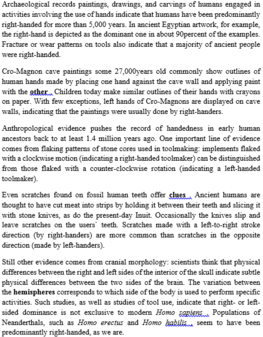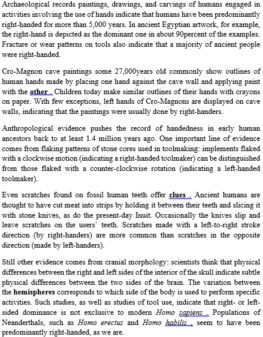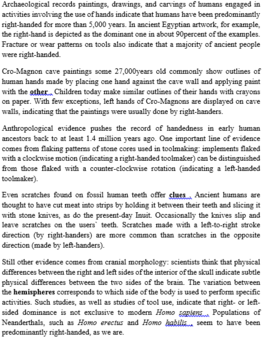Read the following passage and mark the letter A, B, C, or D on your answer sheet to indicate the correct answer to each of the questions from 36 to 42.
Even with his diverse experience as an elected official at the state level, Andrew Johnson was the first president of the United States ever to be impeached, primarily because of his violent temper and unyielding stubbornness. His career started in 1828 with his collection to the city council of Greenville, Tennessee, and after two years as an alderman, he took office as mayor. His advancements followed in rapid succession when he was elected to the Tennessee state senate, then as the state governor, and later to the U.S. House of Representatives for five consecutive terms.
In 1864, Johnson ran for the office of vice-president on the Lincoln- Johnson ticket and was inaugurated in 1865. After Lincoln’s assassination six weeks into his term, Johnson found himself president at a time when southern leaders were concerned about their forced alliance with the northern states and feared retaliation for their support of the secession. Instead, however, with the diplomatic skill he had learned from Lincoln, Johnson offered full pardon to almost all Confederates on the condition that they take an oath of allegiance. He further reorganized the former Confederate states and set up legislative elections.
Congressional opposition to his peace- making policies resulted in gridlock between the House and Johnson, and the stalemate grew into an open conflict on the issue of the emancipation of slaves. While Johnson held the view that newly freed slaves lacked understanding and knowledge of civil liberties to vote intelligently, Congress overrode Johnson’s veto of the Civil Rights Bill, which awarded them citizenship and ratified the Fourteenth Amendment. In the years that followed, Congress passed bills depriving the president of the power to pardon political criminals, stripping away his status of commander-in-chief, and taking away Johnson’s right to dismiss civil and executive officers from their duties. Johnson vetoed each bill, and each veto was overridden. When Johnson dismissedvthe secretary of war, Edwin Stanton, Stanton refused to step down and was supported by the House of Representatives, which voted to impeach Johnson. At the trial, the Senate came one vote short of the two-thirds majority necessary to remove him from office. After Johnson’s term expired, he returned to his home state, but in 1875 he was elected senator and went back to Washington to take his seat.
What can be inferred from the first paragraph about Andrew Johnson’s work in Tennessee?
A. He was represented to the posts five times
B. His personality precluded him from important positions
C. His work became known to the governor
D. He was elected to several important posts






Đáp án D
Thông tin: His career started in 1828 with his collection to the city council of Greenville, Tennessee, and after two years as an alderman, he took office as mayor. His advancements followed in rapid succession when he was elected to the Tennessee state senate, then as the state governor, and later to the U.S. House of Representatives for five consecutive terms.
Dịch nghĩa: Sự nghiệp của ông bắt đầu vào năm 1828 với sự gia nhập hội đồng thành phố Greenville, bang Tennessee, và sau hai năm như là một hội viên cao niên, ông nhậm chức thị trưởng. Sự thăng cấp của ông theo sau trong sự kề thừa nhanh chóng khi ông được bầu vào thượng viện bang Tennessee, sau đó là thống đốc tiểu bang, và sau đó đến Hạ viện Hoa Kỳ cho năm nhiệm kỳ liên tiếp.
Phương án D. He was elected to several important posts = Ông được bổ nhiệm vào một vài chức vụ quan trọng, là phương án chính xác nhất
A. He was represented to the posts five times = Ông đã được đại diện cho những vị trí ấy năm lần.
Không có thông tin như vậy trong bài.
B. His personality precluded him from important positions = Tính cách của ông ngăn cản ông từ các vị trí quan trọng.
Chỉ có thông tin cho rằng tính cách của ông khiến ông bị bãi nhiệm tổng thống, chứ không có thông tin nói rằng tính cách ấy ngăn cản ông đến với chức vụ quan trọng. .
C. His work became known to the governor = Công việc của ông được biết đến với các thống đốc
Không có thông tin như vậy trong bài